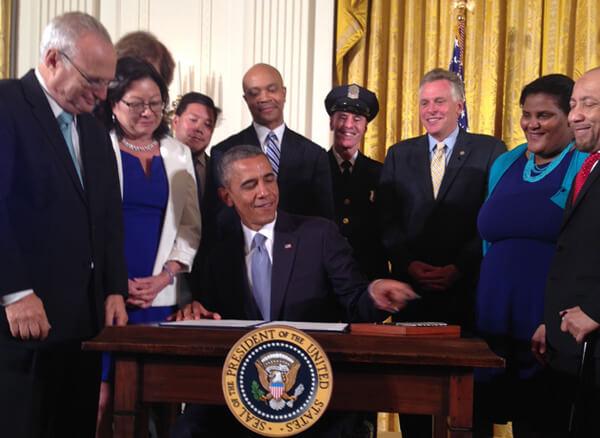Less than half of the estimated 152,000 transgender Americans who are enrolled in Medicaid live in states that provide access to comprehensive gender-affirming care, according to a new report published by the Williams Institute at UCLA.
Just 69,000 of existing trans Medicaid recipients have clear access to comprehensive care in accordance with their state’s laws or court rulings, according to the October report, while 51,000 trans Medicaid beneficiaries are in states that have ambiguous laws surrounding such care, and 32,000 are in states that explicitly ban access to it. The report does not state whether gender non-binary individuals were included in the data.
“This patchwork of protections creates uncertainty for transgender people who are enrolled in Medicaid,” said the report’s co-author, Christy Mallory, who serves as the Williams Institute’s director of state policy and education initiatives. “Absent further policy changes in states that have bans or lack clear language addressing coverage, many transgender people in the US will continue to face obstacles when seeking health care just because of where they live.”
The numbers coincide with ongoing attacks on the health needs of LGBTQ people during the retrograde Trump era. Just three years ago, the state-by-state disparities appeared to be on their way out when the Obama administration’s Department of Health and Human Services banned Medicaid programs, under the terms of the Affordable Care Act, from excluding coverage of gender-affirming care. Yet, the Trump administration has utilized proposed rules and employed other mechanisms to unravel those policies. Most recently, a federal court ruling vacated Obamacare protections for trans patients in the midst of a legal battle led by Franciscan Health, formerly known as Franciscan Alliance, a group of 14 facilities in Indiana and Illinois, which has argued that gender-affirming care violates the religious beliefs of this Catholic-affiliated institution.
The sobering statistics present disparities that have been highlighted by advocates who have called on Congress to pass the Equality Act. In more than half the states, it is legal to discriminate on the basis of sexual orientation and gender identity.
The 18 states that have explicit coverage of gender-affirming care under their Medicaid programs, according to the report, are California, Colorado, Connecticut, Illinois, Maine, Maryland, Massachusetts, Minnesota, Montana, Nevada, New Jersey, New York, Oregon, Pennsylvania, Rhode Island, Vermont, Washington, and Wisconsin — though Illinois is still in the process of finalizing an administrative policy implementing that coverage and in Wisconsin a federal judge in September permanently enjoined the state from enforcing a 1996 ban on Medicaid payment for gender-affirming care. Washington, DC, also provides such coverage under Medicaid.
Twenty states lack specific policy on whether gender-affirming care is covered under Medicaid, including Alabama, Arkansas, Delaware, Florida, Idaho, Indiana, Kansas, Kentucky, Louisiana, Michigan, Mississippi, New Hampshire, New Mexico, North Carolina, North Dakota, Oklahoma, South Carolina, South Dakota, Utah, and Virginia. Such care is sometimes covered in those states, but according to the report trans people there often face barriers such as inconsistent coverage, leaving folks with deep uncertainty over the future of their health.
Twelve states — Alaska, Arizona, Georgia, Hawaii, Iowa, Missouri, Nebraska, Ohio, Tennessee, Texas, West Virginia, and Wyoming — have explicitly banned coverage of gender-affirming care under Medicaid. Many of those states, including Alaska, Georgia, and Missouri, focus their bans on gender-affirming surgeries, while states such as Arizona have more broadly banned “treatment of gender dysphoria including gender reassignment surgeries.”
Although most trans Americans live in states that lack necessary gender-affirming coverage under Medicaid, many states have nonetheless made tremendous strides in recent years. California started offering gender-affirming care under its Medicaid programs in 2013 with other areas of the country not following suit until 2015, when Connecticut, Maryland, Massachusetts, New York, Oregon, Rhode Island, Washington, and Washington DC, also moved to include such care. Additional states, like Maine and Illinois, just moved to include such care this year.



































